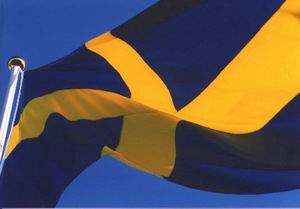Proponents of evermore expensive government social programs often point to other nations, usually in Scandinavia, as places Canada should emulate. These advocates call those nations, erroneously, Socialist or Social Democratic. However, they are not.
It is important to recognize the difference between the general political economy of a typical Scandinavian nation and that of a truly socialist one. The first difference, a key marker of socialism, is that the state dominates the economy – owning majority stakes in all large enterprises (and many smaller ones, too). By that standard, France, Russia, China, Saudi Arabia, Indonesia, India, Brazil, and Canada by their state ownership of many firms, and property, are far more ‘socialist’ than in Norway, Sweden, Finland or Denmark: Scandinavia, where government control of business is rare. Governments do not monopolize power and gas utilities. A Swedish health expert visiting the Frontier Centre in 2000 wryly observed that Manitoba’s government owned car insurance monopoly reminded him of “East Germany in the 1970s.”
All four Nordic nations have vigorous, dynamic free market economies, and vibrant stock and bond markets. They generally refrain from the protectionist policies that are common in more statist realms. Free trade and commercial freedom are crucial to economic vitality there, just as they are in other successful free market democracies. What Canadian and other ill-informed politicians are conflating are government economic intervention with social programs, which is not the same thing.
As to the Nordic nations, Deloitte reports government spending is around half of their total Gross Domestic Product. This is substantially higher than the approximate 40% level found in the United States and Canada (excluding the outlier years of the recent Covid pandemic). Nordic nations’ spending is largely on transfer payments, such as income support to low-income people or families. However, in contrast to North America, Nordic programs are structured to be more efficient, towards minimizing disincentives to seek and hold jobs. Unemployment there is low.
Social supports usually feature training or apprenticeship programs, enhancing employability and reducing the risk of people leaving the Nordic labour force. Their programs also do not penalize newly hired workers by cutting back support or taxing their total income at a high marginal rate. People leaving welfare there do not face an effective tax rate making wage income lower than the taxpayer-supported dole. Overall support is higher in the Nordic nations, hence the touted ‘generosity’ that our ‘social justice’ warrior-advocates seek here.
Nordic support comes with a high price: personal income tax rates are steeply progressive in Scandinavia, toping out at 50% in some. Value added taxes, ‘VAT’, comparable to GST here, is in the 18% range, which taxes consumption at a high level, with few exemptions. However, corporate income tax rates are competitive with other developed nations – in the high teens or around 20%.
That is because Nordic ‘progressive’ voters, and the politicians they support, are neither anti-business nor anti-capitalist, unlike the self-styled intelligentsia here. They recognize that the free-market economy is the golden goose – and should not be hampered or penalized, nor its profits confiscated. Firms’ free cash flows are reinvested in operations and hiring. Even Nordic education and health care are market-based, offering school vouchers, meaning real parental choice between competing schools. Healthcare is single-payer but consumer-focussed with competing public and private sector service providers and sophisticated activity-based/results-based funding for hospitals.
A more expansive, intelligent, competition-oriented, efficient welfare state is not socialism.
Ian Madsen is the senior policy analyst at the Frontier Centre for Public Policy



